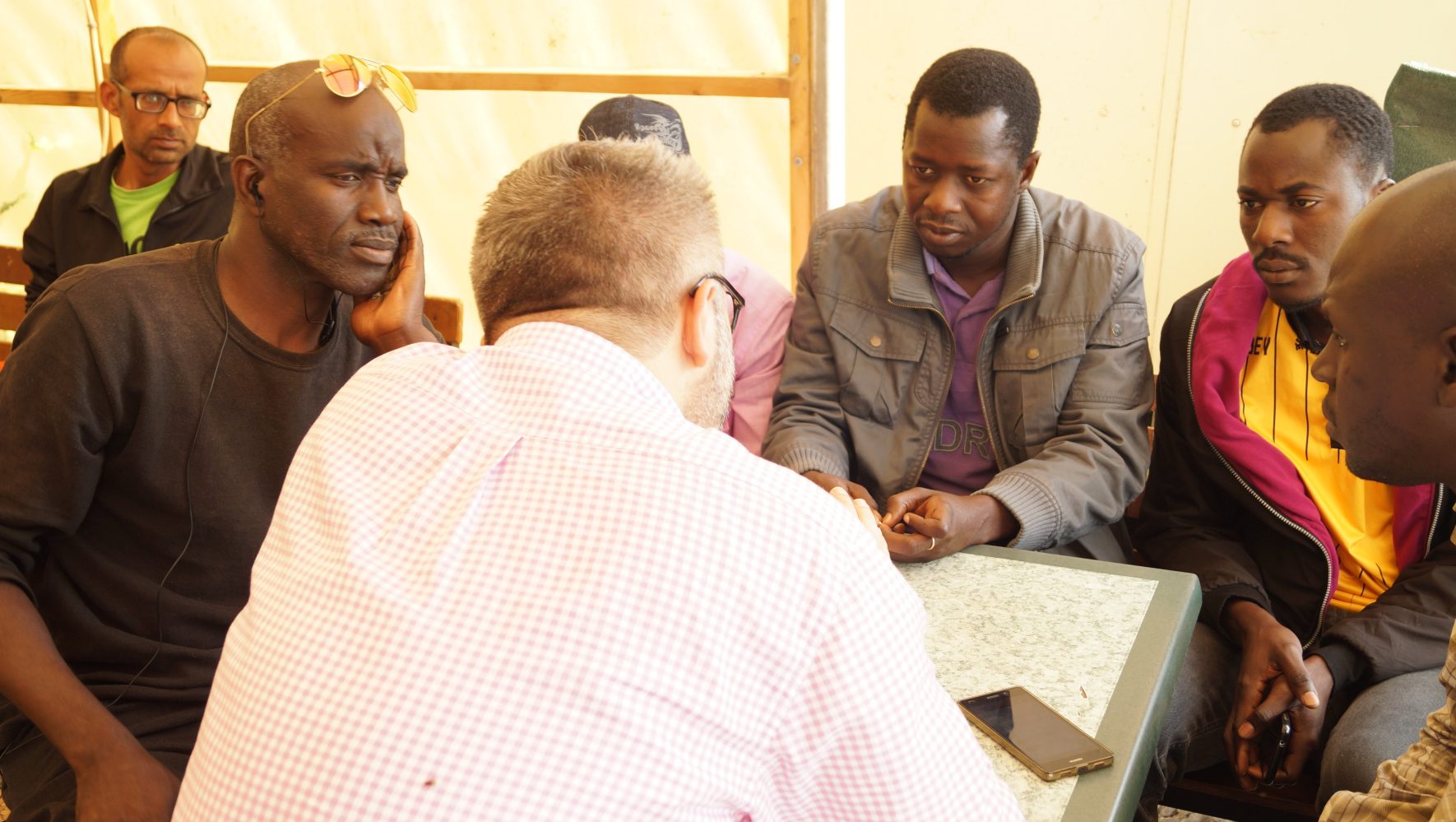Opinion: Both the E.U. and the United States Are Endangering Refugees
Mar 10, 2020
An injured migrant sits behind a barbed-wire fence at the border between Turkey and Greece in Pazarkule, Turkey, on February 29, 2020.
(Bulent Kilic/AFP via Getty Images)
During the past two weeks, thousands of refugees in Turkey have packed up their lives and rushed to the border with Greece. They went seeking safety in the European Union, exercising a right that is guaranteed to them by international law. Instead of finding that safety, they have been tear-gassed, blasted with water cannons, and sandwiched between Greek and Turkish police. They are now stuck at the border, waiting for politicians to decide their futures.
Thousands of miles away, refugees, asylum seekers, and other displaced people are waiting near the U.S.-Mexico border for the same reason. Many of these people fled gang violence, torture, and persecution, coming to the United States in search of safety. In violation of international law, the U.S. government has forced them to stay in Mexico while they request asylum, leaving them to face kidnapping, criminal violence, and other threats. Many are afraid to step outside of the few shelters available to protect them.
In both situations, displaced people are being used as political pawns, denied their rights and protections to serve the needs of political leaders. In Turkey, the government encouraged refugees to go to the border as a way to pressure NATO for help with Ankara’s military operations in Syria. In the United States, rejecting asylum seekers allows the Trump administration to look tough to its supporters.
These decisions have put tens of thousands of lives at risk in violation of both international law and our collective commitment to protect the world’s most vulnerable people. The 1951 Refugee Convention — and the international refugee law that was built upon its foundation — promises refugees the opportunity to safely cross borders to seek protection from persecution. Instead, they are being turned back. HIAS, along with 151 other humanitarian organizations, has called on the Greek government to end its mistreatment of refugees and respect their legal rights. And both the U.S. and the E.U., which is backing Greece in its refusal to accept refugees, must do better. They must honor their commitments under the 1951 Convention and be held accountable for endangering the lives and liberties of vulnerable people.
It is possible to welcome those seeking persecution and violence. We know this because countries around the world have already done their best to open their doors and create welcoming environments for displaced and vulnerable people. Colombia, for example, takes in thousands of Venezuelans every day. That country, which now hosts nearly 2 million Venezuelan refugees, has granted citizenship to babies born within its borders and allows Venezuelans to work and access vocational training without documentation. Uganda has welcomed a similar number of refugees from South Sudan, providing them shelter and access to land they can farm to feed their families.
The U.S. and the E.U., with a combined GDP greater than the rest of the world, should take a page from these two small but generous countries — and we should all take part in pressing them to take moral leadership and holding them accountable for their exclusionary and harmful policies.



